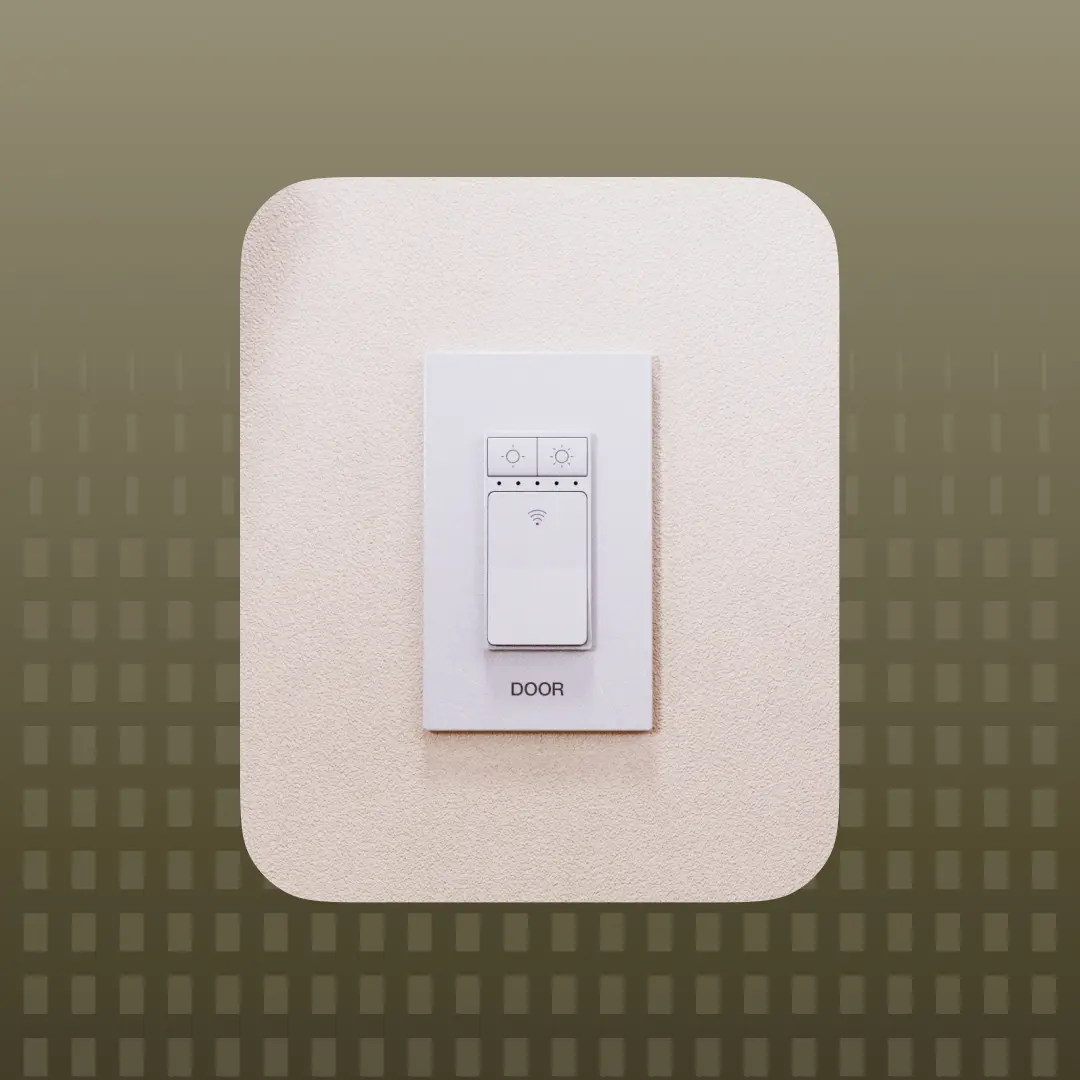The Evolution of Building Technology
The buildings we live in are getting smarter, but the systems that run them haven’t kept up. It’s time to move beyond “smart” and toward integrated, truly intelligent building operations.
For decades, buildings have been defined by their infrastructure: HVAC systems, wiring, plumbing, and physical security. The introduction of “smart buildings” promised a new era of efficiency, but in practice, most deployments have been fragmented.
Smart locks solved access. Thermostats optimized climate control. Leak sensors minimized damage. Resident apps added convenience. Each brought value on its own, but together they formed a costly patchwork that was difficult to maintain and scale.
This is where the industry stands today: dozens of point solutions operating in isolation, creating a fragmented ecosystem that’s difficult to manage. The result? Operators juggle multiple dashboards and vendors, residents experience uneven service, and owners struggle to capture meaningful ROI.
Building Intelligence is the next evolution.
Rethinking How Buildings Operate
Instead of siloed devices and software, Building Intelligence creates a unified operational layer. It transforms properties from reactive assets into proactive systems that anticipate problems, reduce costs, and create seamless experiences for operators, residents, and owners.
Building Intelligence ensures end-to-end operational efficiency. It allows buildings to predict problems from the data they collect, and when issues do arise, it uses the platform to solve them quickly and cost-effectively. In practice, it’s like adding a constant layer of operational awareness, quietly safeguarding assets and reducing friction for staff.
What Is a Building Access Control System’s Role in Building Intelligence?
At its core, Building Intelligence connects building access control systems, Smart Home devices, and property operations software into one platform. This integration enables both prediction and resolution.
Anticipate and Prevent

Smart Home solutions combined with DOOR OS, our intuitive software, already provide valuable data that operators can act on. Moisture detection from a leak sensor, for example, can trigger a maintenance request before water spreads to multiple units.
As AI becomes more embedded in building operations, that same data will become even more powerful by analyzing patterns, flagging irregularities earlier, and enabling staff to make proactive decisions before small issues become costly problems.
This shift steadily moves buildings from reactive problem-solving to predictive operational efficiency.
Streamline and Resolve
When problems do occur, Building Intelligence leverages access control hardware, DOOR OS software, and integrations with property management systems to deliver faster, more cost-effective outcomes.
For example, a technician doesn’t need to coordinate with leasing staff or track down a master key. Instead, they receive a secure digital credential that grants time-limited access to exactly where they need to go.
This dual approach of predictive prevention and streamlined resolution shifts property management from reactive to proactive.
Why the Market Needs a New Category in Proptech
The Limits of “Smart Buildings”
The phrase “smart building” has been used in real estate for nearly two decades, but too often it has meant adding isolated devices without integration. A resident might control their thermostat through an app, but if a leak occurs, staff still rely on manual ticketing and physical access to solve the problem.
Fragmentation Is the Real Cost
Operators now juggle separate systems for door access, parking, package lockers, visitor management software, and property management systems. This duplication adds cost and slows down operations. Instead of simplifying daily workflows, technology has in many cases made them more complicated.
Building Intelligence as the Solution
Building Intelligence introduces a new category in proptech. It is not a marketing slogan, but a practical framework that unifies fragmented systems into one operational layer.
By consolidating access, property management, and automation within DOOR OS, operators can automate workflows, capture NOI gains, and scale operations without adding headcount. Staff can focus on outcomes instead of administration because the platform ties everything together.
Real-World Example: Leak Detection and Resolution
Water damage is one of the most expensive and disruptive problems in multifamily buildings and student housing. Traditional workflows are slow: a resident notices a leak, submits a maintenance request, and waits for staff to coordinate the fix. By the time action is taken, damage often extends beyond the initial unit.
With Building Intelligence, the process looks entirely different:
- A leak sensor detects moisture under a sink.
- The system automatically creates a work order in the PMS.
- A technician receives a secure, time-bound PIN code for unit access.
- The issue is resolved before the water spreads, protecting residents and asset value.

This single workflow demonstrates how Building Intelligence doesn’t just detect problems, it orchestrates the entire resolution, reducing costs while improving resident trust.
Value Across Stakeholders
For Operators
Operators gain immediate efficiency through automation. With Building Intelligence, they no longer need to manage stacks of keys or schedule in-person handoffs. Digital credentials are dynamic, secure, and revocable in seconds.
Consider unit turnovers. Traditionally, staff spend hours rekeying locks and coordinating access for painters, cleaners, or contractors. With Building Intelligence, this process is dramatically simplified:
- Rekeying costs disappear.
- Smart thermostats automatically switch to energy-saving modes for vacant units.
- Staff can issue temporary digital codes directly to vendors.
What once took days of coordination now happens instantly and at lower cost.
For Residents
Residents benefit through convenience and reliability. Access is mobile-first, maintenance issues are resolved faster, and communication is clearer because systems are connected and working together.
Through the DOOR App, residents can also book trusted service providers from our HelloTech network, giving them quick access to support without delays or confusion. From everyday access to maintenance updates, residents experience a property that simply works.

For Owners & Developers
For owners and developers, Building Intelligence is about maximizing ROI. Instead of piecemeal investments that depreciate quickly, Building Intelligence provides a unified platform that protects asset value, reduces operating costs, and enables future scalability. Energy efficiency, fewer insurance claims from water damage, and more consistent resident satisfaction all contribute to consistent NOI.
What Building Intelligence Is Not
As the term gains traction, clarity is key. Building Intelligence is not another resident experience app with limited functionality. It is not a collection of disconnected Smart Home devices with no integration layer. And it is not a vision of the future with no practical use case today.
It is a framework that solves today’s operational challenges while laying the foundation for predictive, adaptive capabilities tomorrow.
How to Choose an Access Control System in the Age of Building Intelligence
When evaluating a modern building access control system, look for these essential capabilities:
- Seamless integration with PMS and visitor management systems
- Multiple access methods including mobile credentials, RFID cards, PIN codes, and wearables
- Cloud-based management with centralized controls and remote updates
- Predictive workflows powered by data and automation
- Scalability across multiple sites and diverse property types
Operators who adopt cloud-based systems with Building Intelligence capabilities position themselves for both immediate ROI and future innovation.
Looking Ahead: The Future of Building Intelligence
Building Intelligence signals a new era in property operations and access control. Properties are becoming more integrated, adaptive, and intelligent. Systems that once operated in isolation now inform each other, creating compounding benefits for efficiency, compliance, and resident trust.
The industry has spent years investing in point solutions. Building Intelligence brings those investments together, creating value that compounds instead of fragments.
Operators no longer need to choose between efficiency and experience. With Building Intelligence, they can achieve both, unlocking a smarter, more resilient future for their properties.





.webp)




.webp)

